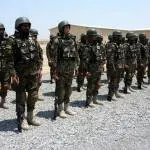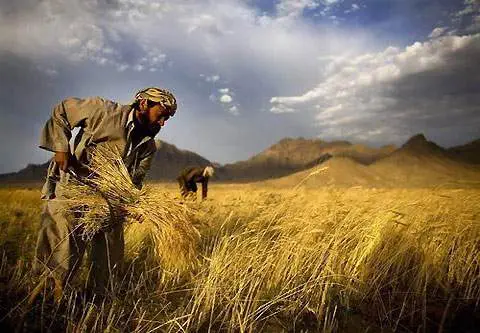 Why global conflicts are a menace to one and perceived growth to the other?
Why global conflicts are a menace to one and perceived growth to the other?
Is it fair to be on the side of the winning team and yet sympathize with the underdog? Such is the nature of human ethos. In the case of Afghanistan I worry for innocent people in and around the conflict more than anyone else in the melee of the Af-Pak region. Imagine the plight of those who are in the conflict zone, close to the fighting, and that afar constantly under threat of an onslaught. Sometimes it is better to be in ground zero for the value of life is reduced to days if not minutes. I digress from my real intent to prophesize about the future of the Af-Pak region.
Afghanistan is on the invasion route to India
History says this, and an unstable region here will make matters a constant burden on the economic growth of India and the region. Look at the genesis of the conflict: it has had two actors: the US and the Al Qaida and their variants the Taliban, it started on an existing overlay of the India-Pakistan conflicts and differences. After 9/11 and the US retaliation I had predicted a 40 year war which the US has gotten into. It is not a prophecy but mere commonsense and knowledge of the region’s history. Osama bin Laden chose Afghanistan because the people there are fighters, born with a gun in their hands and a fairly inhospitable terrain. They have been so since eternity and the colonial British Empire’s biggest military embarrassment was their massacre in Afghanistan. They quickly learnt to respect the tribal and sectarian nature of the region.
Forty years, as it will see some 10 presidency terms for a policy change.
To bring together a warring people you need a charismatic leader who wields the gun – a warlord. Many countries were born out of conflict by the supremacy of a singular warlord, with outside support. Mao and before him Chiang Kai Shek are examples. This leads me to feel that a democratically elected-US backed government has little chance against the Taliban warlords. Would it have been different if they brought in Karzai as a warlord backed by them? They did back the Taliban in the past. Perhaps the Pakistani involvement needed Karzai to be a sanitized approach into the region. It has backfired and left Karzai smoldering between the US and the Talban now a recognizable community by the default recognition by the US. It won’t be too long when you have two Afghanistans the true one and the real one!
To compare the troop withdrawal from Afghanistan to the Iraq situation will be a folly as Iraq had a stable though autocratic system before the US invasion. For these reasons the chances of Karzai government surviving is bleak unless it has a continued physical support of foreign troops or realigns with ‘friendlier elements’ of the Taliban. The US has realized this and under domestic pressure to bring back troops and the need for establishing its foreign policy goals, it has sidelined Karzai with direct negotiations with the Taliban. The zero option gives neither Afghanistan nor the US any options. This will mean the end of US involvement in Afghanistan? Defeat? Afghanistan may eventually end up with the Taliban in power with US support.
the logic and commonsense in seeing the end of conflicts: reading the signals
I was emailed an interesting BBC article about Konrad Kellen. He was an unknown defence analyst who might have changed the course of the Vietnam War if only people had listened to him, argues Malcolm Gladwell. http://www.bbc.co.uk/news/magazine-23037957
Reading this article will highlight the fact that commonsense is not a key element in deciding outcomes of conflict zones. Conflicts are needed to sustain the idea of a super power. If there isn’t one … one or the other will surface. It is the nature of the human race and the US will drive this idea under any circumstance.
Afghanistan has a similarity with Vietnam more than that with Iraq. If one were to take stock of the good that the US has brought about in the world it stands out as the global policeman mostly in Africa and somewhat n the Middle east. This aligns very well with their economic (arms trading and reconstruction) and foreign policies, but is a matter of debate in domestic circles. There are no questions asked when it comes to national security. (A matter highlighted in Obama’s Drone Policy speech to the US National Defense University). The US faces a threat; it became real after 9/11.
Iraq and Afghanistan even after being declared successful operations will leave behind the threat unlike all the other wars fought by the US. The euphoria of leading the Second World War and the cold war alas has died down and, Iraq and Afghanistan (or the other way round) shows a weakness in their foreign policy. There are too many ghosts with no shadows.
Despite it all the Af-Pak region will benefit by the American influence and the notions of liberty, equality and modern progress. This cannot be denied and post Second World War has seen this being a huge success in the constitutions of countries that came under the influence of the US. Despite the entire anti-American breast beating, people everywhere have a desire to go the American way. A brand that the US doesn’t need to sell, but needs to capitalise.
Matters of convenience
Hsieh Su-wei and Peng Shuai are the two Chinese ladies from Chinese Taipei and China (PRC) they played together to win the Wimbledon Ladies doubles title. Their countries were separated in history largely by the influences of their war lord leaders and US and Russian influences. Can we ever have such partnerships from the Af-Pak region? I highlight this to show that conflicts are sometimes a matter of convenience.
The US is a major player in the North Asian issues. South Korea, Japan and Taiwan are a US interest against China their biggest trading partner. Cross straits relationships are not as hot as they used to be and US has been working collaboratively with China and Russia on the North Korean Nuclear issue. It is important to understand the ambiguity in US relations, which will be the nature of any international diplomacy. Bring the relationships closer to the Af-Pak region and the questions that arise are: will the US incorporate Russia and China into a collaborative thinking about the future of Afghanistan.
US – India relations at a turning point?
Whatever they do, in every situation the region will impact on US-India relationships. A talk about layering the region with Indo-Pak differences seems an attempt to draw India into the Afghan region with more commitment. India has refrained from any coalition and will now have to make hard choices. The Northern Alliance is favorable to Indian and Russian support, but it is a bit late to change the situation Afghanistan.
India does have the advantage to effectively defend itself and can dictate its position in the region in a conventional scenario. The threat of terrorism, which is the hallmark of intimidation in Indo-Pak relations are a different matter and surpasses the geo politics of the Hindukush region. Perhaps the warlords and their handlers need to understand the drivers for peace … why can’t we have a Westphalia type of peace and evolve ourselves to the better aspects of humanity. We do need to eschew a middle age mentality to the problems of the region. Perhaps what is good for the US may be good for all … including the Taliban.
(Photo acknowledgement: theconversation.com)






